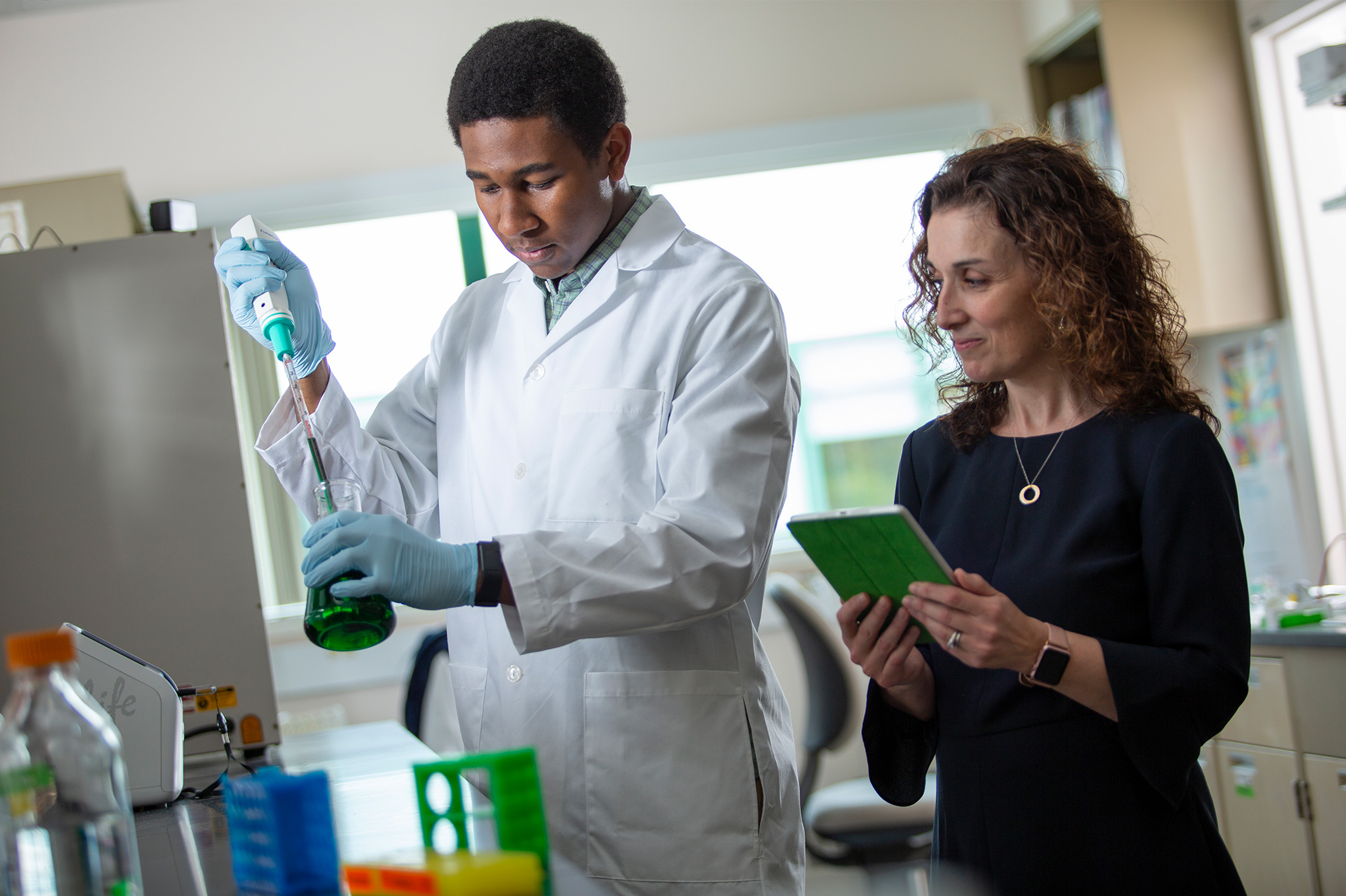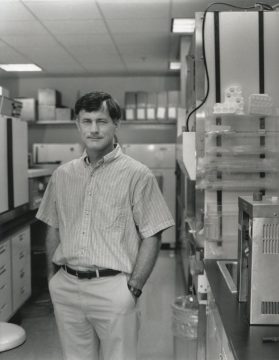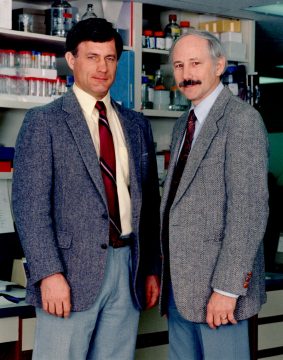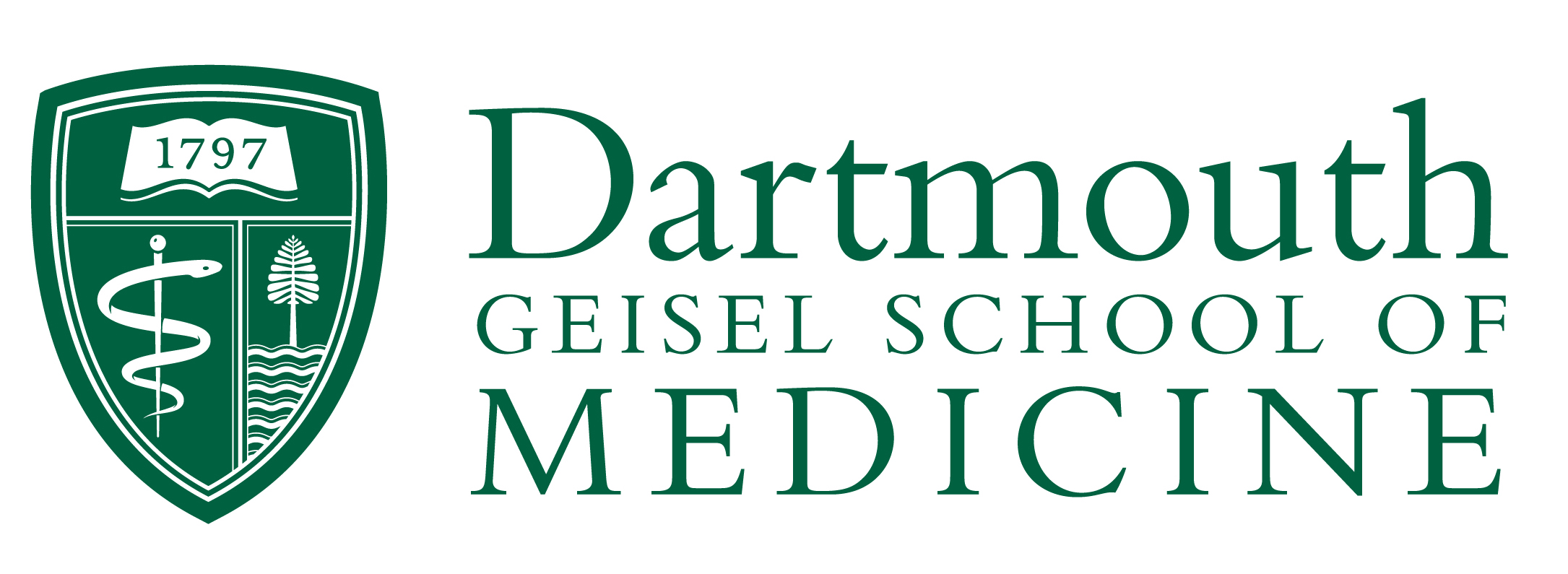
“One of the first grants I ever wrote was with a clinician, on a Sunday, at a ski race for our sons,” says Paul Guyre, PhD, emeritus professor of microbiology and immunology at the Geisel School of Medicine. “How many places are like that?”
With that simple story, the pioneering immunologist and entrepreneur gets right to the heart of what makes the biomedical research culture so successful at Dartmouth. Physicians, scientists, engineers, and business leaders are constantly interacting, sharing ideas, and devising potential solutions to improve lives. That close-knit community combined with world-class scientific resources have made Dartmouth and Dartmouth-Hitchcock’s Norris Cotton Cancer Center one of the top comprehensive cancer centers in the country—and a place where donors see the opportunity to have a major impact on the world.

In recent months, donors made three gifts totaling $3.35 million in support of immunotherapy research at Geisel and the cancer center. Immunotherapies engage the body’s immune system to battle cancer cells. These therapies can be less risky, more effective, and easier to tolerate than traditional cancer treatments, such as chemotherapy. The cancer center and immunotherapy research are top fundraising priorities for Geisel and part of Dartmouth College’s The Call to Lead Campaign. (Learn more about Geisel’s campaign.)
Dartmouth scientists, like Guyre, have been at the forefront of cancer immunotherapy for decades. Medarex—the company that Guyre cofounded in 1987 with Dartmouth researchers Michael Fanger, PhD, and Edward Ball, MD—developed the first successful blockbuster cancer immunotherapy drugs. Since then, 14 biomedical startups have had their roots in the cancer center, several of them focused on immunotherapy.
Three Gifts
Guyre and his wife, Veronica, made a gift of $750,000 to provide the cancer center with immediate flexible funding to rapidly scale up its preclinical and early phase clinical trial capacity and to invest in high-potential areas of immunotherapy research.
Bob Barber, whose wife, Esther, was treated at Norris Cotton Cancer Center, established the Robert L. and Esther T. Barber Cancer Immunotherapy Research Current-Use Fund with a five-year commitment that will total $1 million. Esther did not survive her cancer, but Bob is grateful for the care she received.

“We made many, many trips to the cancer center, and we never found the staff hurried. People were kind and gentle,” says Barber. “And they didn’t sugarcoat things. That, for both of us, was very helpful in making realistic and informed decisions regarding Esther’s care.”
When Barber learned about immunotherapy and its potential to be more effective and easier to tolerate than standard cancer treatments, he knew he wanted to help advance that research.
“I felt that if I could assist Dartmouth in these new therapies that could supplant chemotherapy and other debilitating treatments, that would mean a lot to me and my family,” says Barber. “I wanted to do something that would benefit the most people.”
The third gift, made by Justin Gmelich and Victoria Hall Gmelich, a 1991 graduate of Dartmouth College, establishes a professorship to support Geisel faculty focused on teaching and/or research in the areas of immunology or oncology. Justin and Victoria have been longtime supporters of both education and medical research. The Gmelichs are also founders of the all-girls STEM high school, Trinity Hall.
Building on Innovation
Dartmouth scientists continue to be on the leading edge of cancer immunotherapy. One treatment, now in early clinical trials, is based on research by Geisel immunologist Charles Sentman, PhD. His team created a unique form of CAR T-cells that can target up to 80-90 percent of human cancers and can be compatible with any patient.
Another treatment in clinical trials is based on discoveries by Randolph Noelle, PhD, the Thomas S. Kosasa, MD, Professor at Geisel and co-founder of ImmuNext. That treatment is based on a checkpoint regulator called anti-VISTA.
A combination of federal grants, institutional and community support, and private philanthropy fueled the early research for both therapies.
“Philanthropy will help the next generation of scientists take bigger risks and innovate more quickly,” says Guyre. As he knows firsthand, wise and bold scientific risk-taking is often what leads to the most transformative breakthroughs.
To discuss making a gift to immunotherapy research at Geisel, contact Bethany Solomon, director of development for the cancer center: Bethany.Solomon@Dartmouth.edu or 603-653-0793.




